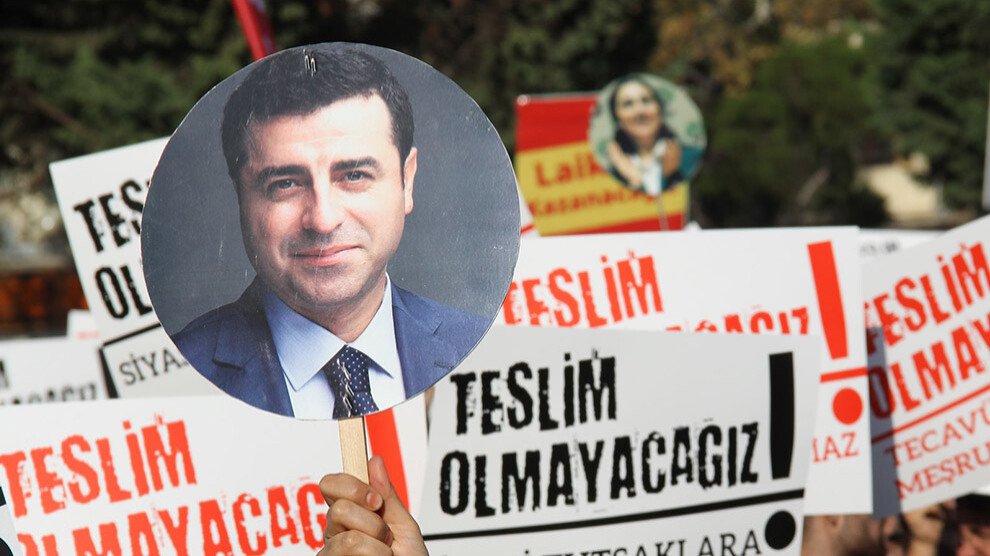Turkey must ensure the immediate release from detention of an opposition politician, Selahattin Demirtaş, following a European Court of Human Rights’ Grand Chamber ruling on December 22, 2020, Human Rights Watch said today.
The Grand Chamber ruled that in initially detaining Demirtaş and then prolonging his detention for over four years, the Turkish government pursued an ulterior purpose of preventing him from carrying out his political activities, depriving voters of their elected representative, and “stifling pluralism and limiting freedom of political debate: the very core of the concept of a democratic society.” The Grand Chamber ordered Demirtaş’ immediate release.
“The European Court of Human Rights’ very strong judgment confirms that the Turkish government has kept Selahattin Demirtaş behind bars for political reasons,” said Hugh Williamson, Europe and Central Asia director at Human Rights Watch. “The judgment demonstrates how the Erdogan presidency weaponizes detention and prosecution to remove opponents from the political scene and threatens free democratic debate.”
Demirtaş, former co-chair of the Peoples’ Democratic Party (HDP) political opposition to the government of President Recep Tayyip Erdoğan, has been held in Edirne F-type prison in western Turkey since November 4, 2016.
The Grand Chamber of the European Court of Human Rights was ruling on an appeal from a November 20, 2018 judgment by one of the court’s regular chambers in Demirtaş’ case. Both chambers found that Turkey had violated the European Convention rights protected by articles 5.3 (right to liberty regarding prolongation of detention) and Article 3 Protocol 1 (the right to free and fair elections), and violated Article 18 (misuse of limitations on rights in the Convention).
“In calling for Demirtaş’ immediate release, the Grand Chamber judgment also states that any failure to do so will prolong the violation of his rights and breach Turkey’s obligation to implement the rulings of the European Court of Human Rights,” Williamson said. “The Turkish government must act without delay and cannot disregard this judgment with specious arguments that it doesn’t apply to Demirtaş’ current detention.”












